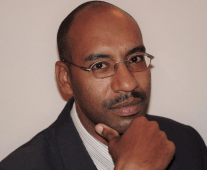
Since we all learn new things through a process of failure, we are normally at our least responsible time as late-teenagers. That is when we transition from being dependent children into adults. As children, our parents were mostly responsible for our actions. As adults, we are fully responsible for our actions.
Late-teenagers can do much damage as they get used to their new adult responsibilities. Car insurance companies manage these risks by charging them high car insurance premiums. Employers of secondary-school graduates manage these risks by apprenticing them under close supervision.
WIND OATS.
During this transition time, unsupervised young men may stupidly sow wild oats, and unsupervised young women may stupidly accept them. This normally results in a well-studied set of social problems for all of us, and severe disadvantages for the children of such brief promiscuous unions.
Teenage university students have the potential to do significant harm. They are sheltered from the responsibilities of adulthood if their parents are funding their studies. They also tend to avoid the benefits of close employer supervision, since they are assumed to know the work – of which they only have an academic understanding.
UNIVERSITY STUDENTS.
Since university students are normally delayed from transitioning into adulthood, they need additional adult supervision to manage their potential for harm. When they do not receive that critical supervision, everyone is at risk.
University graduates, who have not yet experienced adult responsibilities, but who have been promoted over adults, can destroy a business. They must make mistakes while they learn, and everyone under them will have to pay the price while they learn.
PROVEN FAILURES.
Those who give university students critical responsibilities, are the most unwise of us all. University students were reportedly allowed to mark CXC exams – without the critical close supervision. It was a regional disaster that will be nightmarishly messy to resolve. But we refused to learn.
Some bright spark wants to unleash university students to visit every household, to carry-out medical tests, during a pandemic of an aggressive deadly virus. The likely result is clearly foreseen – they will be national super-spreaders of the virus, as they go house-to-house unrestricted.
SAVE US.
What can the Government do to reduce our chances of this becoming the foreseen national disaster? They can simply manage the students in accordance with ISO 9001 principles. The obvious question, that everyone seems terrified to ask, is: Why does the Government continue to reject this internal management standard, which is now desperately needed?
The Ministry of Health appears proudly satisfied with their reactive management approach – just cleaning up their unnecessary messes. Tragically, each successive mess has greater consequences for us all. This time, it is not the grades of our students that are at risk – it is our very lives.
Today, the Ministry of Health should be reviewing their plans to manage these students, in accordance with ISO 9001 principles. They are not. So, we must now beg for the lives of our fellow citizens.
Can some influential person please tell the Ministry of Health to start using the ISO 9001 international management standard immediately – for all of our sakes?





Leave a Reply to 555dubstreetCancel reply